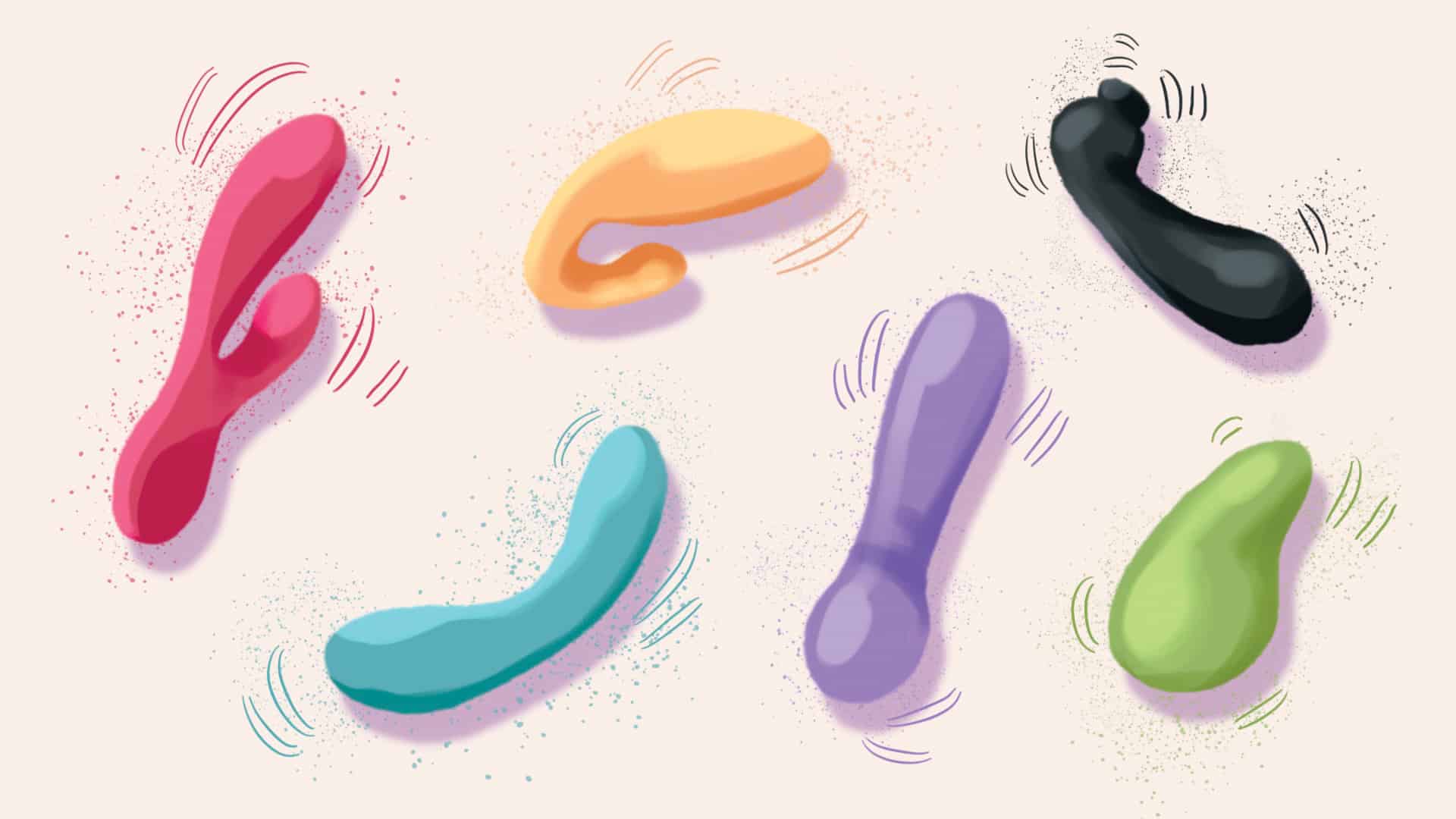What’s pink, round, smooth, and supposed to give you mind-blowing clitoral stimulation? A vibrator called ‘The Firefighter’ of course.
If for some reason that doesn’t sound like your metaphorical cup of sexual tea, try ‘The Tennis Pro’; it’s a vibrator for the sporty masturbator. Still not satisfied? There’s ‘The Billionaire,’ ‘The Surfer,’ and ‘The French Lover’ — and those are only examples from the brand Smilemakers. The choices of vibrators are endless — and, more recently, so are the opportunities to get your horny hands on one.
To set the stage, imagine Indigo as it was two years ago: an endless supply of book club material, novels that Heather picked, a scented candle, maybe some blankets. So imagine my surprise when, on my bimonthly visit, I found a health and wellness section vibrating with sex appeal. It seems that, this time around, Heather’s picked more than The Handmaid’s Tale; Indigo now sells sex toys.
Soon after noticing this new addition to Indigo’s brand, I found that Sephora — a cosmetics and skincare store — had also started selling vibrators. When I looked again at the clothing store Urban Outfitters’ Beauty section, I found them there too. Even Call it Spring — a shoe store — has hopped on the trend.
Vibrators are not only being sold en masse, but they’re looking good in the process. Take Sephora’s stock for instance; their vibrators are offered in vibrant shades and are shaped like everything from eggs to bullets.
Colours and shapes aside, the wonderful part of selling vibrators in general is that it normalizes masturbation. This wide selection is needed and welcome; presenting vibrators in soft colours and friendly shapes challenges the assumption that masturbation is ‘gross’ or ‘scary.’ Self-pleasure is too often viewed as a side-effect of loneliness or as a butt of a joke amongst friends. If I were to say that “the only love of my life is my vibrator,” it would be, for some reason, perceived negatively.
Vibrators being sold in non-sex-focused stores affirm the idea that self-pleasure and masturbation are important for our own ‘health and wellness.’ It also allows good orgasms to be more accessible. For example, it’s much easier for me as a woman to walk into a Sephora and purchase a vibrator than it is to navigate the “For Her” section of a sex-themed shop staffed by middle-aged men.
Inspired by my joyful discoveries, I decided to conduct a deep dive into the new vibrator selections of these stores. As I embarked on my journey, however, I couldn’t help but wonder: is getting us off just a way for these stores to get more money?
Vibrators are definitely increasing stores’ profit. On the Sephora website, they range from $42 to $160, depending on the shape and speed you choose. As I write this article with $42 less in my purse than was there before, I’m getting the feeling that Sephora doesn’t just sell vibrators for the purpose of making us love ourselves.
Capitalizing on self-love is anything but new; it’s what corporations have been attempting to do since they realized that humans have souls. For instance, items such as candles and makeup are often marketed as gifts to ourselves. Dove frequently uses a tagline relating to women’s empowerment in their soap advertisements. Sephora is selling vibrators packaged as wellness for the same reason: self-love and sex positivity are becoming increasingly common, and the smooth vibrators they sell are catering to that market.
In addition, corporations often cater their products toward an exclusive audience. In this case, the majority of vibrator marketing is geared toward women. It’s no coincidence that these stores have released swarms of sex appeal around International Women’s Day, and it’s no coincidence that vibrators appear in the “Gifts for Her” section of Indigo’s website and store — harmfully implying that all those who use vibrators are women and that being a woman means having a vagina.
It’s shameful that these stores aim to be progressive and sex-positive while simultaneously excluding transgender and nonbinary folks from sexual liberation. There are better ways to handle discussions about sex toys, and if you are looking for a vibrator better fit for you than one in a “For Her” section, reading the more gender-inclusive “Vibrator Guide” from Teen Vogue is a great way to learn more.
It’s not only transgender and nonbinary people who are being discluded from self-love — it’s also people who are interested in more taboo products. Every time I visit Indigo, I note that they don’t include sex toys that some customers may find more overtly sexual, such as strap-ons. An innocuous pink bullet is a sale waiting to happen; a strap-on may spell scandal for a company.
This is what makes me accuse Indigo, Sephora, and every store in between of not caring about sex positivity, but just about positive growth in their company’s sales. After all, the US sex toy industry is worth $7.1 billion USD annually.
Ultimately, corporations promoting sex positivity is a welcome change — even if it collectively costs us billions to convince them to do so. However, we shouldn’t rely on products they sell to us to determine our opinions of sex and pleasure. We should masturbate, and we should use sex toys as tools to make the experience better — and we shouldn’t do so only because Free People will sell us a vibrator for $66.57.
Likewise, our pleasure can only be determined by us. No one should feel ashamed of a desire just because Sephora doesn’t carry it in four different colours.


